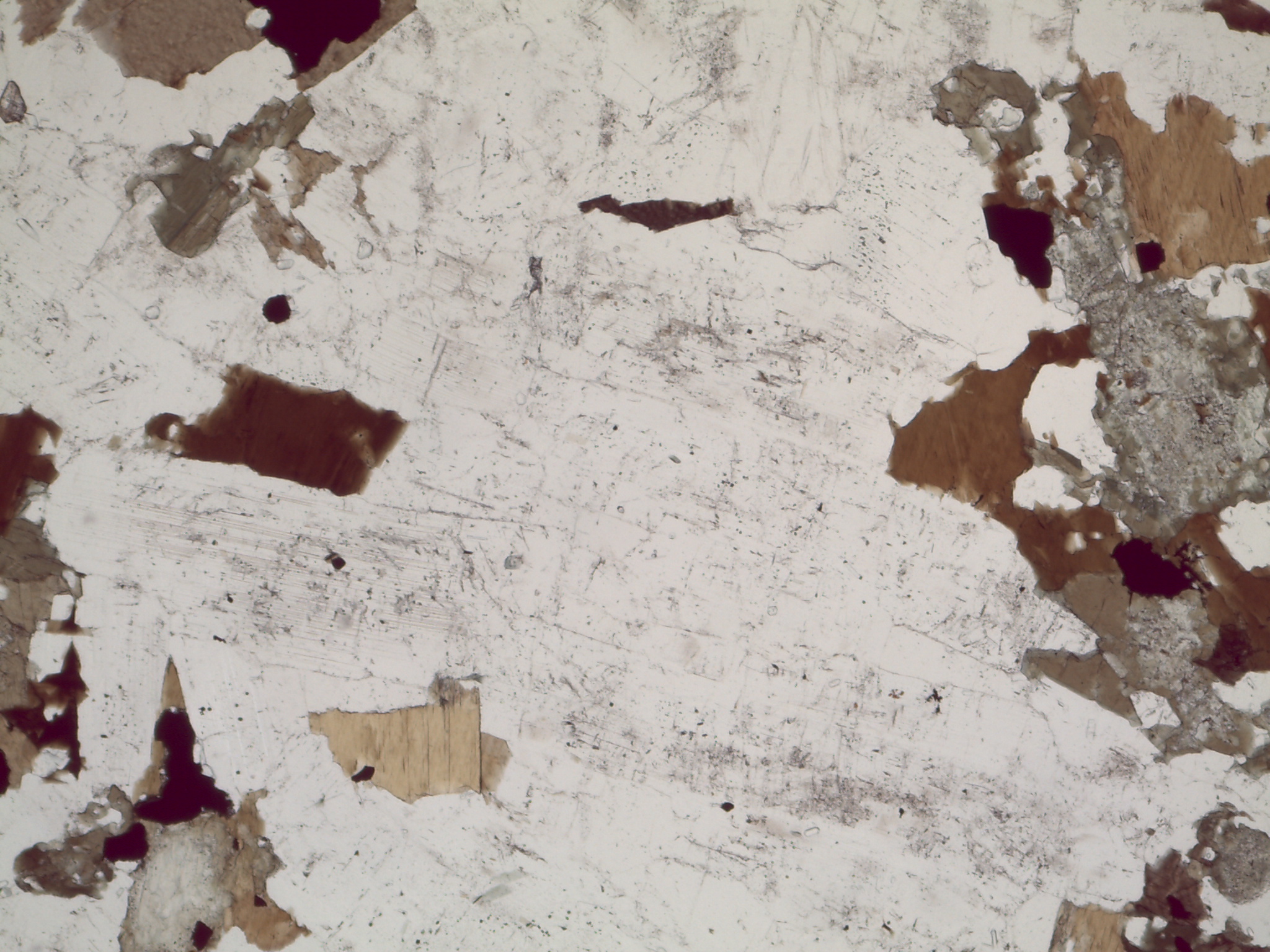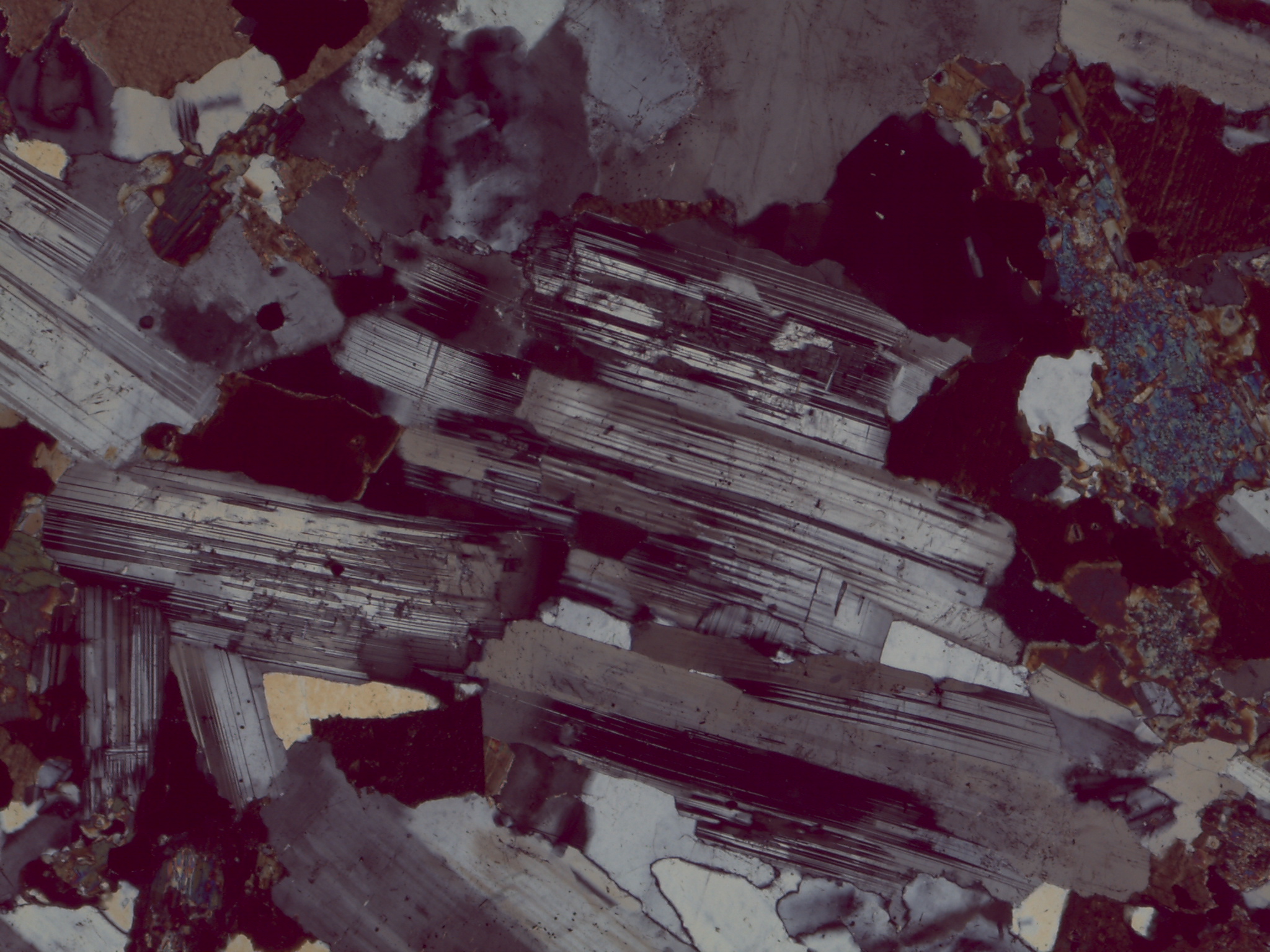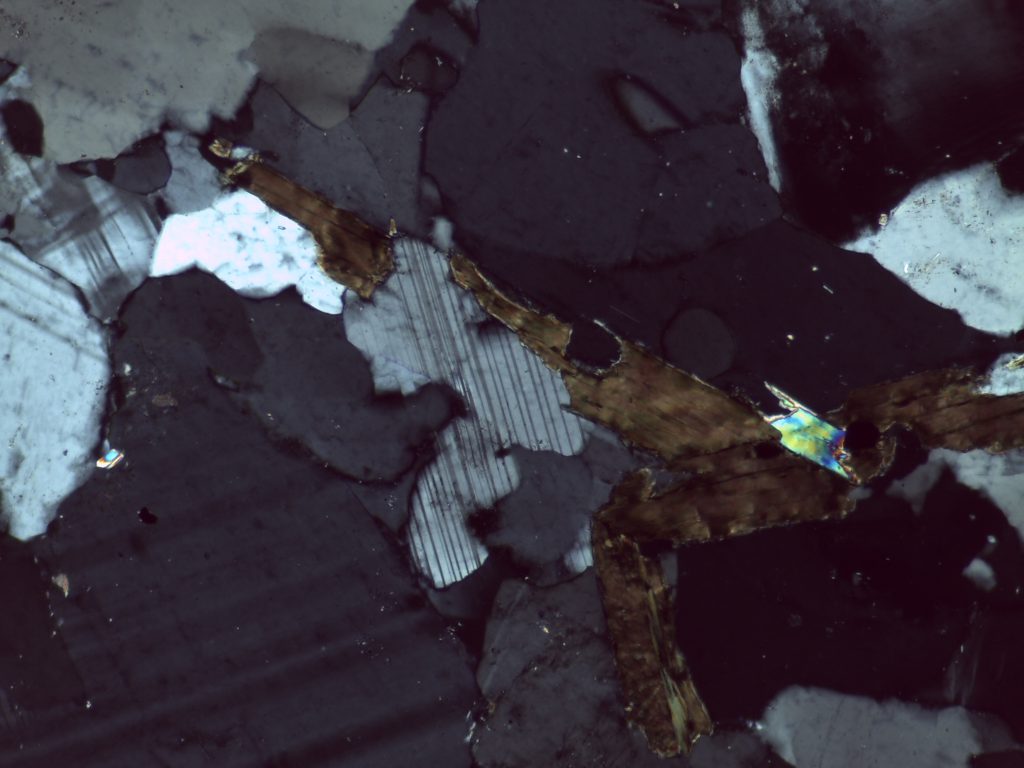Albite is the sodic end member of both the plagioclase feldspar series and the alkali feldspar series.
If you have trouble remembering the name of the white feldspar and you’re at all familiar with Harry Potter, think of Albus Dumbledore, whose first name, Albus, is Latin for white. It’s helped a surprising number of people keep their feldspars straight.
In thin section, plagioclase feldspar grains often look like they’re sprinkled with dirt (PPL) or tiny confetti (XPL). You can find the explanation on the plagioclase feldspar page.
Physical Properties |
|
| Chemical formula | NaAlSi3O8 |
| Class | Tectosilicate 3D frameworks of linked tetrahedra |
| Crystal system | Triclinic |
| Habit | Prismatic Tabular Bladed |
| Color | White Gray Green |
| Hardness | 6 |
| Specific gravity | 2.62 |
| Cleavage | Perfect(001), good (010), poor {110} |
| Fracture | Uneven |
| Luster | Pearly Vitreous |
| Transparency | Translucent |
| Streak | White |
Optical Properties |
|
| PPL | Colorless Non-pleochroic Low relief |
| XPL | 1st order grays Polysynthetic/albite twinning (“zebra stripes”) |
| δ | 0.011 |
| Twinning | Polysynethetic/albite Pericline |
| after Perkins, 308-309 |
Albite in Hand Sample
Albite
More albite
Scanning electron micrograph
Albite in Thin Section
Thin Section GigaPans
Albite in diorite, plane polars
Albite in diorite, crossed polars
Polysynthetic twinning in albite, plane polars
Polysynthetic twinning in albite, crossed polars



There is no corresponding photo or video for polysynthetic twinning in plane polars because the twinning isn’t visible in plane polars.